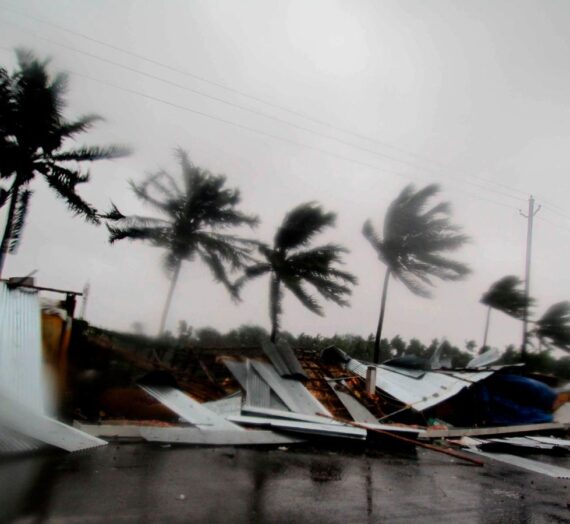Before attending an interview and wondering what questions and discussions you will go through, it is better to prepare and have some ideas about all the types of questions, which would be asked so that you can prepare the answers for them.
Here you’ll get the most popular programming questions of these days and as per my experience, a good interviewer hardly plan to ask any particular question during your interview and the questions starts from the basic concept.
Also you’ll get some coding questions as well where you have to deduce the resulting value or statement. The coding questions can’t be predicted and will only dependent on your programming practice. Let’s get started with all the latest (2020-21) interview questions-

Table of contents
Introduction Based Questions
- Tell me about yourself.
- Why you have opted software engineering?
- Do you know the name of our company? Can you spell it.
- Who is the CEO of the company?
- For which post you have applied for?
- Why you have choosed this post?
- What do you think about the working of this post?
- Have you appeared in the interview before?
- What are the qualities of a good software engineer?
- Tell me something about your college project.
- Can you tell me the difference between Computer Engineer and IT Engineer.
- If you’ll crack this interview and got the job, what extra efforts you will put from your side?
- Have you earned any sort of certification to improve your learning and implementation process?
Basic Technical Questions
- Can you tell me some basic difference between C, C++ and JAVA.
- Which programing language you have prepared for today’s interview? (If many technical skills/languages are mentioned in your resume)

Questions for Technical and Practical round:
JAVA
- What do you know about Java?
- Define object and class.
- What kind of variables a class can consist of?
- Tell me something about Local, Instance and Class Variable.
- Difference between StringBuffer and StringBuilder class.
- Explain Runtime Exceptions. Which are the two subclasses under Exception class?
- When throws and throw keyword is used?
- Define Inheritance. And tell when super keyword is used?
- What is Abstract class?
- When Abstract methods are used? Give some features of Interface.
- What are the two ways in which Thread can be created?
- Explain the usage of this() with constructors?
- What is function overloading and function overriding?
- What are the ways in which a thread can enter the waiting state?
- Differentiate between yielding and sleeping.
- What is Serialization and deserialization?
- What is the difference between an Interface and an Abstract class?
- Why do we need wrapper classes?
- What is dot operator? And what is the difference between the >> and >>> operators?
- Explain main thread under Thread class execution?
- What method is called by Applet class tp load an image?
- What will be the default values of all the elements of an array defined as an instance variable?
- How do you decide when to use ArrayList and LinkedList?
- What is runtime polymorphism or dynamic method dispatch?
- Is it necessary that each try block must be followed by a catch block?
- What is the difference between error and an exception?
C Language
- What is C language? Who designed C programming language?
- What are the features of the C language?
- What do mean by preprocessor as well as protocol?
- Define token and pointer.
- What is the use of a static variable in C?
- What is the use of the function in C?
- What is an auto keyword in C?
- What is the use of printf() and scanf() functions?
- How do you construct an increment statement or decrement statement in C?
- Distinguish between malloc() and calloc() memory allocation.
- Explain the syntax for the loop. What is an infinite loop?
- Explain about ‘stdin’. Can we compile a proram without main() function?
- Define a structure and what is typecasting?
- Explain the purpose of the function sprint().
- Define array. What is the meaning of base address of the array?
- What is the difference between actual and formal parameters?
- Explain modular programming. Also what is a structure and nested structure?
- What is constant and recursion?
- What are command line arguments? Tell the use of comma operator(,).
- What is the difference between the local and global variable in C?
- What is a pointer? What is the usage of the pointer in C?
- Tell me the maximum length of an identifier?
- What is an infinite loop?
- Describe union in C.
- Write a program to swap two numbers without using the third variable.
- Write a program to print Fibonacci series with or without using recursion.
- Write a program to check prime number in C.
- Write a program to print factorial of given number using recursion.
- Write a program to check Armstrong number in C.
- Write a program to reverse a given number.
PYTHON
- What are the key feature of Python?
- Is Python case-sensitive? What type of language is Python?
- What does an object() do?
- Does Python have OOPs concept? Explain.
- Differentiate between lists and tuples.
- How is memory managed in Python?
- What are the local and global variables in Python?
- How will you capitalize the first letter of string?
- How will you convert a string to all lowercase?
- How to comment multiple lines in python?
- What are docstrings in Python?
- What is the purpose of is, not and in operators?
- What is the usage of help() and dir() function in Python?
- How can the ternary operators be used in Python?
- What are the built-in types of Python?
- How to add and remove values to a Python array? Does Python have OOPs concept? Explain.
- What is the difference between deep and shallow copy?
- What are python libraries? Name few of them.
- How are classes created in Python?
- Write a program on Python to produce Star triangle.
- Write a program to execute the Bubble sort algorithm in Python.
- Write a program to produce Fibonacci series in Python.
- Write a program to check if a sequence is a Palindrome in Python.
- Write a sorting algorithm for numerical dataset in Python.
- Write a program to check if a number is prime in Python.
Web Designing and Web Developer
HTML & CSS
- Why do you want to be a web designer or web developer?
- What is HTML? Or what are the most commonly used languages and platforms for Web design?
- What is Responsive Website?
- Difference between HTML and HTML5.
- Difference between visibility hidden and display none.
- Define CSS and its type.
- What is the use of comments and how do you insert comments into HTML code?
- What is a pseudo-class?
- Name some of the new media components that are incorporated into HTML5.
- How are tags and elements differ from each other?
- Define CSS selectors? Can you name some
- HTML is different from XHTML. How?
- What is DOM and XSS?
- What so you know about HTTP/3?
- What will be done if an image or a hyperlink is not displaying correctly?
- What are the different HTTP request types supported in Restful Web Services? Can you explain the purpose of each?
- Do you about an ETag and its working?
- Give basic difference within span and div tag in HTML5?
- Have you gone through our website? Please mention what you didn’t like about the site?
JavaScript
- Define JavaScript, what is arguments object in JavaScript?
- How can you get the reference of a caller function inside a function?
- What is the purpose of ‘this’ operator?
- Tell the scope of a variable in JS.
- If name are same then which type of variable among global and local, takes precedence over other?
- Define callback and closure.
- What is Namespacing and CORS in JS?
- How can you reduce page loading time?
- What is the difference between Canvas and SVG?
- What are the different types of pop-up boxes available in JS? Also explain them.
- What is the scope in JS? Name the different types of scopes.
- What is the different between “==” and “===” operators?
- How can you detect the operating system on a client machine in JS?
- Which one do you use the most, CSS Animations or JS Animations?
- Have you used Git for pushing live changes on the website?
- Which web development tools do you use?
- As a web developer, how do you optimize your site’s loading time?
- What is Type Coercions in JS?
- Tell me what is NPM and Webpack?
- What is the difference between ES5 and ES6?
PHP
- Define PHP. What are its uses?
- Is PHP a case-sensitive scripting language? How is a PHP script executed?
- Is typecasting supported in PHP?
- Tell the basic difference between static and dynamic website.
- How can a text be printed using PHP?
- What is the meaning of PEAR in PHP? And tell the use of constructors and destructors in PHP.
- What are the types of variables present in PHP?
- Tell some of the main characteristics of a PHP variable.
- What is NULL in PHP?
- What is the use of final class and final method in PHP?
- How the constants are defined in PHP? Also what is the use of the constant() function?
- Name some predefined constants in PHP.
- How are two objects compared in PHP?
- Difference between PHP4 and PHP5.
- Name 5 popular frameworks in PHP.
- How does JavaScript interact with PHP? Also does PHP interact with HTML?
- Give the name of data types present in PHP.
- Explain CMS. What are the top CMS used in PHP?
- What are the different types of comments in PHP?
- How is PHP differ from ASP.NET?
- What are session and cookies in PHP?
- How can you open a file in PHP? What are the different types of PHP errors?
- Differentiate between GET and POST methods in PHP.
- What is the meaning of type hinting in PHP?
- Differentiate between an indexed array and an associative array.
SQL
- What is SQL?
- What is the difference between SQL and MySQL?
- How is DBMS differ from RDBMS?
- What is a Database?
- What are tables and Fields?
- Define all the 3: primary, unique and foreign key.
- What is a join? What are the types of join and explain each/
- Define normalization and de-normalization.
- What are all the different types if indexs?
- What is a relationship and what are they?
- Differentiate between DELETE, DROP and TRUNCATE commands?
- What are local and global variables and their differences?
- What is a constraint?
- What are aggregate and scalar functions?
- What is Union, Minus and Interact commands?
- What is Data warehouse?
- Define collation. What are the different types of collation sensitivity?
- How to fetch common and alternate records from two tabes?
- What is the command used to fetch first 5 characters of the string?
- Which operator is used in query for pattern matching?
- How to select unique records from a table?
- Give some advantages and disadvantages of Stored Procedure?

Conclusion
Hopefully our CSE Interview Questions guide wass helpful. We will be updating the guide regularly to keep you updated. If our content helps you reach your goal, let us know in the comments below.
ALL THE BEST…






Shruti Singh
Grt job…keep going??
Prerna Mishra
Very useful ??
Riya Shukla
???
Krishna Murari
Precise work done for IT / CS freshers for interview preparation.
Can you make similar question list for other branch freshers?
I hope that will be beneficial for them.